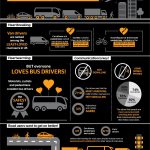Aggression from both motorists and cyclists is potentially putting lives on Britain’s roads at risk, according to research conducted by the UK’s leading road safety charity, IAM RoadSmart.
Indeed, the charity’s annual Driving Safety Culture Report, which surveyed 2,010 UK motorists on driving safety attitudes and behaviour, discovered that almost two thirds (65 per cent) of respondents believe that aggressive cyclists are a threat to their personal safety, while 78 per cent considered people driving a motor vehicle aggressively as a threat to personal safety.
The survey also revealed that the problem is seen to be worsening on both sides of the rivalry, with six-in-ten (60 per cent) of those surveyed believing that aggressive cyclists are a bigger problem compared to three years ago, and 63 per cent believing that aggressive motorists have become more of an issue over the same time period.
The issue of aggressive driving is also reflected in The Department for Transport’s (DfT) latest road collision statistics, which revealed that, of the 1,339 killed on Britain’s roads in 2021, 108 involved aggressive driving as a contributory factor – equating to 1 in 12 of all deaths on the road.
Demonstrating the conflict between motorists and cyclists, IAM RoadSmart’s Driving Safety Culture Report found that there was limited support for a new law would assume that the driver is always responsible for any collision with a cyclist or pedestrian in an urban area, with 61 per cent against, and only 39 per cent in favour.
Neil Greig, Director of Policy and Research at IAM RoadSmart, commented: “The government has introduced a range of laws in recent years in an effort to fix the daily conflicts we see between motorists and cyclists. However, if our research is anything to go by, this has largely been to no avail – with the majority of respondents still reporting aggression and conflict among road users.
“There is no quick-fix to this issue, but our research sheds light on the urgent need for the government to maintain its education campaigns on the new Highway Code, and continue to invest in safe road markings for more vulnerable road users to minimise the chance of conflict wherever possible. In the meantime, all road users, whether on two or four wheels, should exercise calmness and restraint to help us all use Britain’s roads safely.”
To learn more about IAM RoadSmart, visit www.iamroadsmart.com.





















